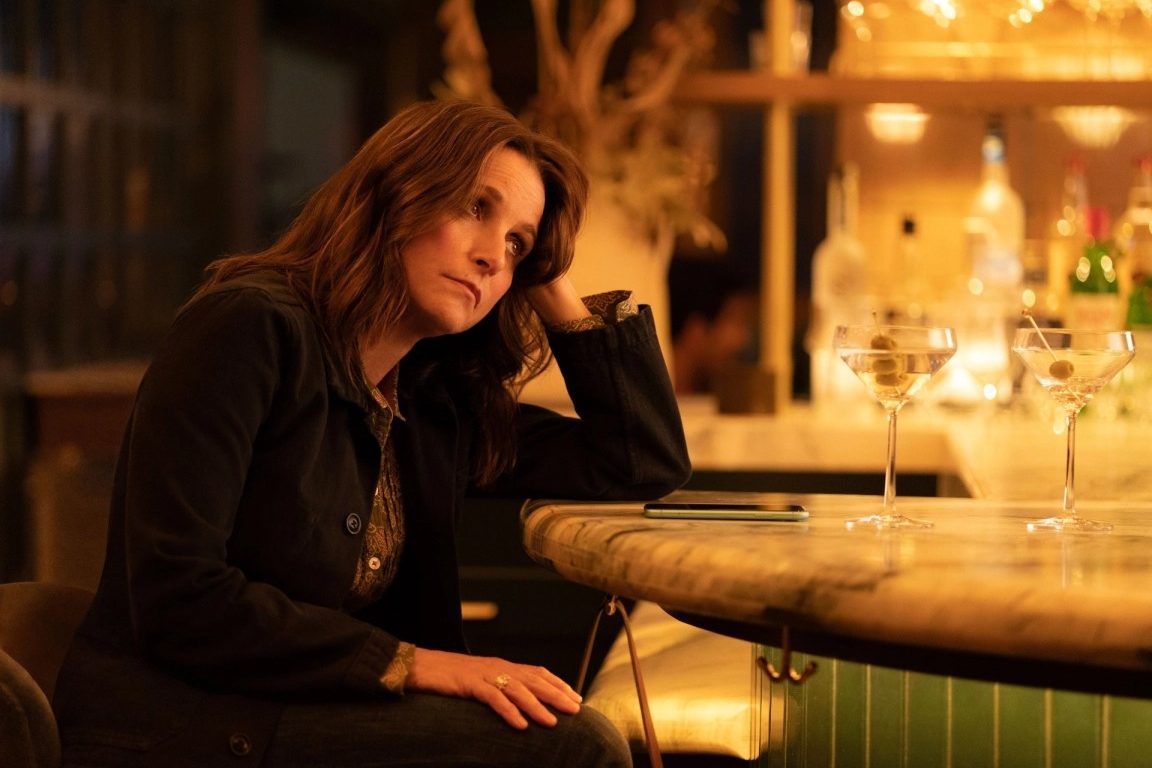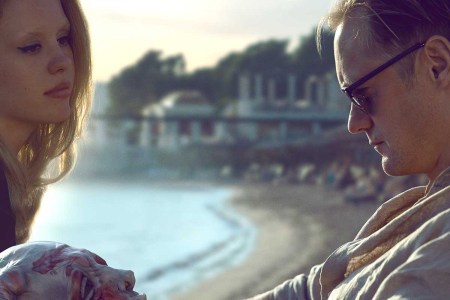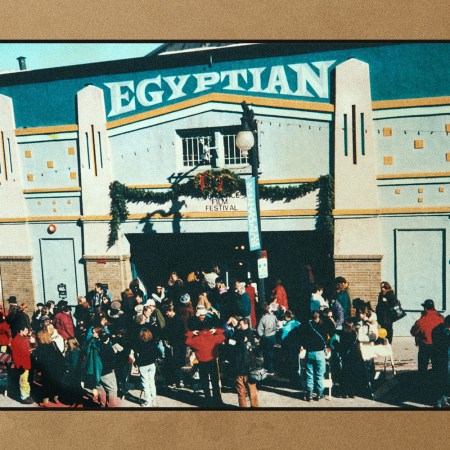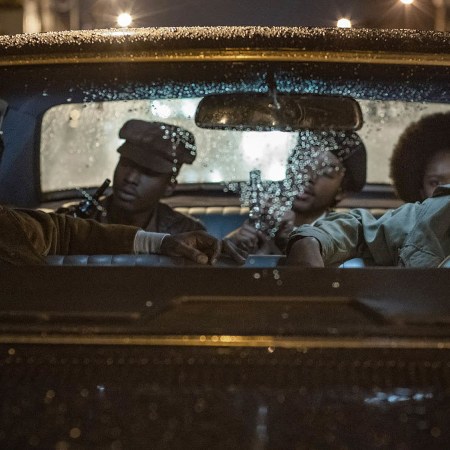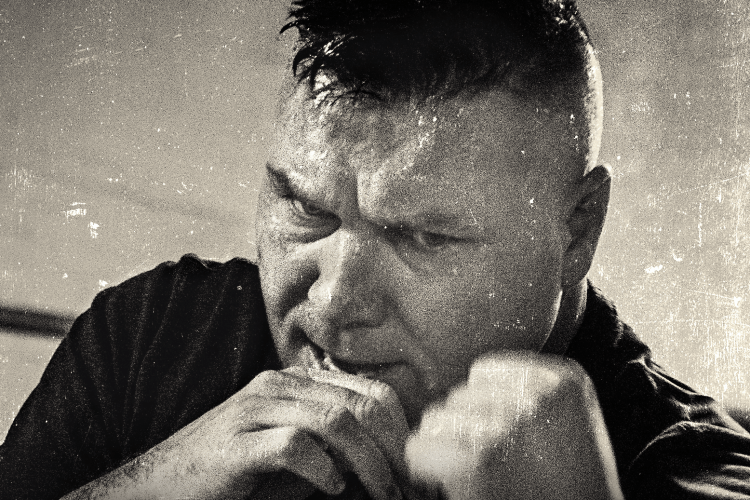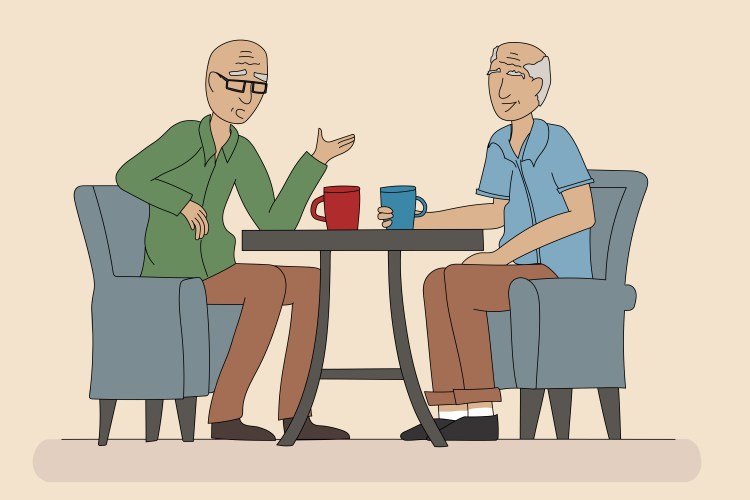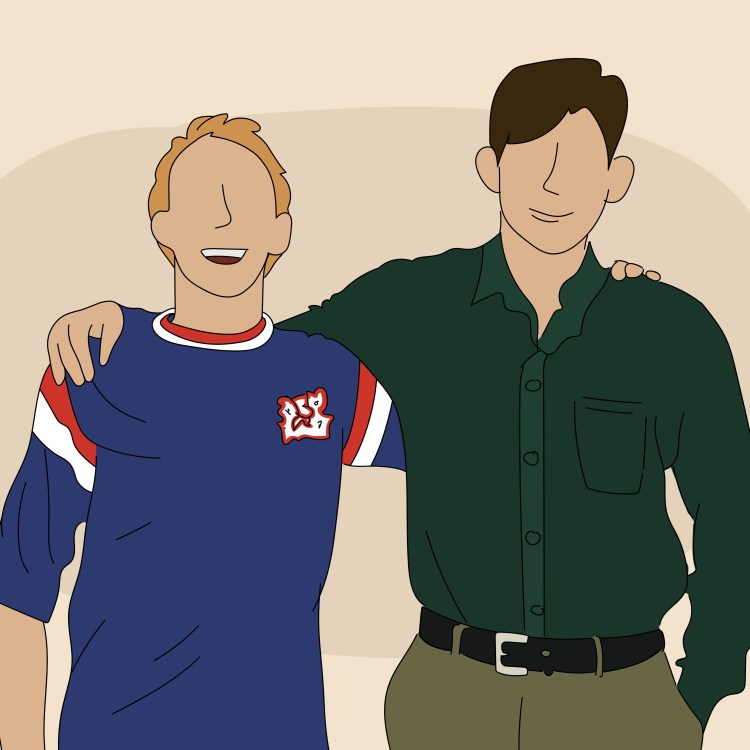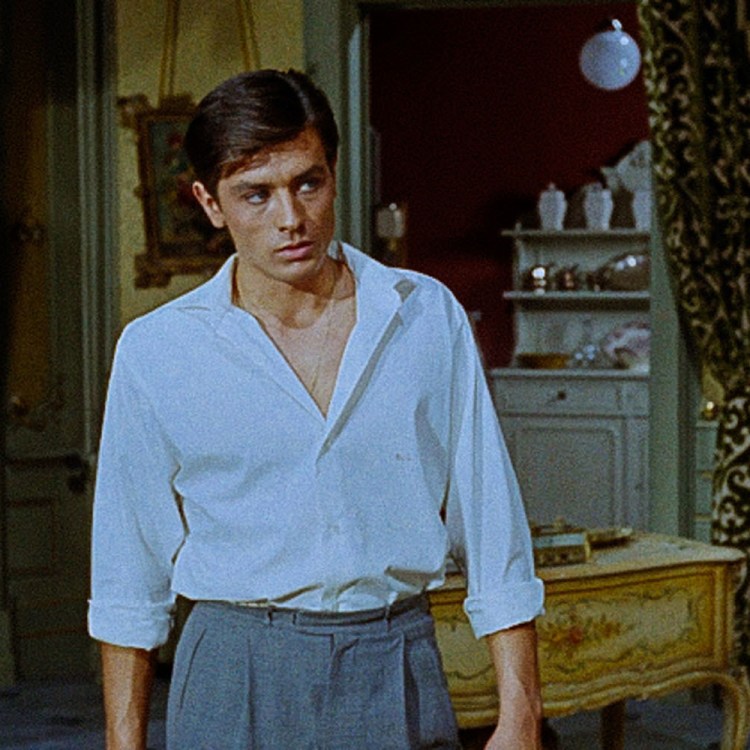For the first time in three years, the Sundance Film Festival took place in person, welcoming back filmmakers, producers, executives, publicists, critics and patrons to traipse through the snow in Park City, Utah, and huddle under the big screen’s glow. After two years of strictly online viewing to accommodate the pandemic, the festival pivoted to a hybrid model in 2023, allowing wider access with virtual screenings to showcase all that Sundance has to offer for those unable (like this writer) to visit the ski town. In this case, that meant more opportunities — and fewer lines — to peruse the thick and diverse catalog that Sundance reliably boasts each year.
Though the festival returned to its more traditional exhibition model, streaming’s increased saturation throughout Hollywood has sidestepped some of Sundance’s originally designed architecture. As a hotspot for independent cinema from the United States and around the globe, the festival used to be the major hub for boutique studios to bid for the next big theatrical hit or Oscar contender. Today, and especially within the last several years, the festival’s titles are gobbled up (sometimes before they even premiere) with more record-breaking sales by Netflix, Hulu, Apple, Amazon and other digital platforms, eager to lure subscribers with buzzy titles that tend to get lost within the algorithmic landscape.
And yet! As I shoveled 30 selections from the festival’s offering this year onto my virtual viewing plate, I remained optimistic about what’s in store for the coming year — and took satisfaction in knowing which hidden gems will be worth remembering when they debut for larger audiences. Will there be another CODA this year? It’s hard to say. But in addition to some of the winners — like A.V. Rockwell’s A Thousand and One and Charlotte Regan’s Scrapper, which took home the juried prizes for U.S. Dramatic and World Cinema Dramatic, respectively — Sundance provided a wealth of ambitious, sexy (and sex-focused) and low-key selections from young directors looking to make their mark.
Here are my 15 favorites from the past 10 days, in alphabetical order, with the exception of a few movies — such as Past Lives, which earned strong initial reviews, John Carney’s music drama Flora and Son and Doug Liman’s Brett Kavanaugh documentary Justice — that screened exclusively in Park City theaters.
A Little Prayer (Angus MacLachlan)
MacLachlan had his breakout as a writer at Sundance 18 years ago with Junebug, a family drama that catapulted Amy Adams into the public consciousness. In his third directorial effort, he returns to Sundance with a platform for another young actress in Jane Levy, but paves room for a moving lead performance from David Strathairn, playing a conservative but compassionate father trying to understand the choices and reckless behavior of his two adult children. Levy plays his daughter-in-law, and the pair’s bond and understated approach to life’s difficult moments carry this sweet gentle breeze of a movie into its tender and tear-jerking final scene. With strong supporting turns from Dascha Polanco and Celia Weston, this is the kind of minor movie that feels major.
A Still Small Voice (Luke Lorentzen)
The winner of the directing award for U.S. Documentary, Lorentzen produces a masterclass of cinema verite filmmaking. His documentary chronicles Mati, a chaplain completing a year-long residency at Manhattan’s Mt. Sinai Hospital, where she provides spiritual care to patients and their family members experiencing deep loss and emotional distress. But this work can be just as distressing for the chaplains themselves, and Lorentzen’s film soon takes the shape of a Russian doll, as Mati and other residents describe their burnout to their spiritual leader, who in turn engages with his own therapist to properly guide the group. Lorentzen uncovers the taxing bureaucratic friction of this profession, but never loses sight of the compassion and prayerful conversation chaplains provide in these sterile, depressing environments.
A Thousand and One (A.V. Rockwell)
The first thing you notice in Rockwell’s staggering feature debut, which won the festival’s U.S. Dramatic award, is the detail. In this sweeping, decade-spanning story of a desperate mother raising her son inside a Harlem apartment, Rockwell is attuned to the specifics of storefronts, newspapers, mayoral speeches and the hints of gentrification that show themselves in changing demographics and luxury condos. In the foreground, this is a movie built around Teyana Taylor, whose gravity can’t be denied. As ex-con Inez, she steals her son, Terry (Josiah Cross, playing the 17-year-old version), from the foster-care system and attempts to give him a life she and her eventual husband, Lucky (William Catlett) never had. With its lyrical R&B score and diverse cinematography from Eric Yue, A Thousand and One signals a bold new filmmaker ready to make her mark.
Cassandro (Roger Ross Williams)
You’re almost always in good hands with Gael García Bernal, a theory that needs no testing in Cassandro, about a gay Mexican luchador who rises to fame after unveiling a new identity. Tired of playing a perennial loser named El Topo in the Juarez wrestling scene, Saúl (Bernal) enlists the help of Sabrina, a trainer who suggests he try becoming an exótico, a maskless, effeminate caricature that garners affectionate hate from the audience. As his pivot gains more exposure and fame, he must come to terms with his father’s abandonment and the relationship he’s had with a closeted lover. Based on the real-life tale of Cassandro (dubbed the “Liberace of lucha libre”), Williams’ first fictional feature captures the spirit and energy of his country’s fight scene with a documentarian’s eye — he lets Bernal’s performative and athletic prowess bounce off the ropes and, in the process, captures the inspiring dual identity that Saúl must negotiate between every day.
Fair Play (Chloe Domont)
The erotic thriller has been a dormant subgenre for a while, but Domont’s riveting feature debut makes a smart, sexy bid for its full-fledged return. At its start, Emily (Phoebe Dynevor) and Luke (Alden Ehrenreich) have an equitable and passionate relationship, which they must keep quiet from the hedge fund where they’re employed. But when Emily gets the promotion Luke was gunning for, their steaming romance turns icy, impacted by passive-aggressive remarks and inter-office sabotage that boils into a heated examination of gender politics. A technical, clinical close-up of finance in the vein of Margin Call that morphs into an Adrian Lyne-inspired melodrama, Fair Play keeps its feet on the ground at its most implausible and provides a feminist lens on a toxic male environment.
Infinity Pool (Brandon Cronenberg)
It’s a fertile pop-cultural moment for eat-the-rich fables — just consider The White Lotus, Triangle of Sadness and The Menu — but Cronenberg’s third feature supplies the most sickening and disturbing iteration yet. At a fictional Eastern European resort, author James Foster (Alexander Skarsgård) gets caught up with a dangerous group of wealthy hedonists after discovering a legal loophole that allows him to avoid prison for criminal offenses. Instead of being locked up, for a hefty fee, he’s cloned and then forced to watch his double get murdered, a perverse attraction that he can’t resist watching again and again. As his seducer and enabler, Mia Goth turns in another wickedly horrifying performance in a movie that devolves into Cronenberg’s specific orgiastic and violent palette. It’s a bold, bodily-fluid affair. (You can read our full review of Infinity Pool here.)
Magazine Dreams (Elijah Bynum)
Sometimes, an uneven movie is worth seeing based on the lead performance alone. Such is the case with Magazine Dreams, which features Jonathan Majors throwing fastballs for two hours as a wannabe bodybuilding star living with his war-veteran grandfather. Described by critics as a Molotov cocktail of Taxi Driver, Raging Bull and Whiplash, Bynum’s movie is a searing and punishing portrait of mental health, masculinity and isolation, following one man’s descent into obsession. Though the third act fails to make this movie as memorable and visceral as initially hinted, Majors delivers the profound and unsettling experience of living inside a tortured mind and roided-out body.
Passages (Ira Sachs)
German filmmaker Tomas (Franz Rogowski) always gets his way on movie sets, and he attempts to have the same kind of autonomy in the bedroom. At a wrap party for his latest film, he meets Agathe (Adèle Exarchopoulos) and begins an impulsive love affair that complicates things with his husband, Martin (Ben Whishaw). As payback, Martin starts having his own extramarital affair, which makes Tomas jealous, jumpstarting his efforts to win back his husband. It’s a messy, selfish back-and-forth that Tomas struggles to navigate, and Sachs leans into his trio of actors to sell each character’s sexual desire and emotional boundaries. Shot beautifully inside Parisian cafes, nightclubs and apartments, Passages builds on Sachs’s canon of love stories with a complex and layered study of romantic restlessness.
Review: “Infinity Pool” Is More Than a Horror Take on “The White Lotus”
Brandon Cronenberg’s latest puts a bloody existential spin on the island resort tropePretty Baby: Brooke Shields (Lana Wilson)
It didn’t take long for Brooke Shields to be defined by her sexuality. After a brief commercial acting stint as a kid, director Louis Malle cast her in Pretty Baby, in which she played an adolescent prostitute. As a teenager, the 1980s icon participated in provocative Calvin Klein jeans advertisements and gained movie-star status with roles in The Blue Lagoon and Endless Love, building a narrative around her career she could never control. Using loads of archival footage, film clips and interviews with family members and friends, Wilson gives Shields a platform to consider the way her mother programmed her young adult life and career — and the way the public perceived it. After making a splash at Sundance in 2020 with her Taylor Swift documentary, Wilson proves her filmmaking chops once again with a comprehensive look at the way Shields became a poster child victim of misogynistic structures and objectification, chronicling her past and contemporary family life with an open, observant approach.
Rye Lane (Raine Allen Miller)
Inspired by the walk-and-talk structure of Before Sunrise with the editing verve and inventive coloration of an Edgar Wright movie, Rye Lane is a delightfully engaging debut feature about two lovesick young Londoners who can’t resist their attraction. As written by Nathan Bryon and Tom Melia, protagonists Dom (David Jonsson) and Yas (Vivian Oparah) meet at a mutual friend’s art show and quickly notice an attraction to each other. Though both are still reeling from recent breakups with longtime partners, they roam around the city’s south side parks, restaurants and karaoke bars and get vulnerable with each other, recognizing the therapeutic benefits of sharing their romantic foibles. There’s an easy, casual charm in Miller’s two leads, which complements the visual and comedic flourishes she implements throughout their marathon adventure. A pitch-perfect cameo only exemplifies this movie’s unexpected, upbeat heart and ode to London.
Scrapper (Charlotte Regan)
Lola Campbell is a young star in the making. In Scrapper, she plays Georgie, a fiercely independent 12-year-old living alone in her recently deceased mother’s flat. To make money, she struts through the London outskirts with her friend Ali (Alin Uzun), stealing bicycles and selling their parts with the assuredness of a professional pawn artist, all while keeping the social workers and concerned adults who call at bay with inventive voice-recorded tricks. When Jason (Harris Dickinson), her estranged biological father, enters the picture, she must learn to share space with a new adult in her life — and determine if she can trust his motivations for being there. The winner of the festival’s World Cinema Dramatic competition, Regan’s little comedy (and the pastel row of apartments in which Georgie lives) imbues the working class spirit and magic-realism of The Florida Project, and it’s not hard to fall for this feisty, foul-mouthed protagonist and her illustrative imagination.
Shortcomings (Randall Park)
At the beginning of Shortcomings, Ben (Justin H. Min), a struggling independent movie theater owner in Berkeley, California, is unimpressed by a Crazy Rich Asians-esque screening at the local Asian American film festival that his girlfriend, Miko (Ally Maki), has helped set up. While he calls it a “garish mainstream rom-com that glorifies a capitalistic fantasy,” Miko argues the film paves the way for other Asian-American directors looking to tell their own unique stories. The rest of Park’s directorial debut, based on a 2007 graphic novel, highlights similar kinds of identity-based debates — about Ben’s interest in blonde women, or the fetishistic impression white men give off when dating Asian women — that Ben has with his lesbian best friend Alice (Sherry Cola). Min’s strong-minded cynic is sure to spark more conversation about the challenges and perceptions minority communities grapple with every day.
Starling Girl (Laurel Parmet)
Though The Starling Girl does little to break the mold of the tried-and-true unrequited love story — a wide-eyed teenager falls for her youth pastor — it’s finely attuned to the friction between faith-based platitudes and real-world lessons. Drawing on her own experiences growing up in a staunchly religious household, Parmet centers her debut feature around Jem (Eliza Scanlen), the eldest of three siblings living in a fundamentalist Christian community in rural Kentucky. Over the summer, Jem has begun to experiment with her body’s sexual impulses and digressed from her mother’s conservative worldview. As the secular sounds of her drunk father’s old band resonate and echo in their garage, Jem finds solace and a romantic awakening with her church’s youth minister (Lewis Pullman), forming an innocent-until-problematic relationship. While depicting the nuances of her two leads’ conflicted states, Parmet importantly never forgets who holds the power as they test the limits of their love.
Theater Camp (Molly Gordon and Nick Lieberman)
I might not have laughed more during the festival than when watching Theater Camp, a tender summer-camp sendup of musical theater culture and the people who make it special. In her directorial debut, Gordon channels her specific brand of comedy into mockumentary format around a superb cast, which includes Ben Platt as an acting coach, Amy Sedaris as the camp’s comatose founder and Jimmy Tatro as her son and no-nothing replacement, who must ring together enough cash to keep this spirited, rag-tag collective from being bought out by their rival camp neighbors. In this Broadway-inspired version of Meatballs, the real humor comes from the stable of aspiring kid-performers, who never miss a chance to steal the spotlight and the punchline as they put together a final tribute production to save their summers.
You Hurt My Feelings (Nicole Holofcener)
It’s been 10 years since Holofcener first collaborated with Julia Louis-Dreyfus on Enough Said, a tender, middle-aged romance featuring James Gandolfini in one of his final roles. A decade later, the pair is back to tackle more relational complexities with You Hurt My Feelings, a fresh and funny look at whether loving someone means also loving their work. When sisters Beth (Louis-Dreyfus) and Sara (Michaela Watkins) pop in on their husbands, Don (Tobias Menzes) and Mark (Arian Moayed), while shopping, Beth overhears Don admit that he doesn’t actually like the new book she’s been writing. Riddled with embarrassment and confusion, Beth struggles to grasp the reasons for Don’s long-held deceit, growing a contempt that begins to erode their partnership. Was this supportive encouragement or harmful white lying? Throughout this foursome’s privileged insecurity and ego-bruising, Holofcener starts a risky conversation about the way we speak to the people we love, and the words that are better left unspoken. Couples, tread carefully!
This article was featured in the InsideHook newsletter. Sign up now.
